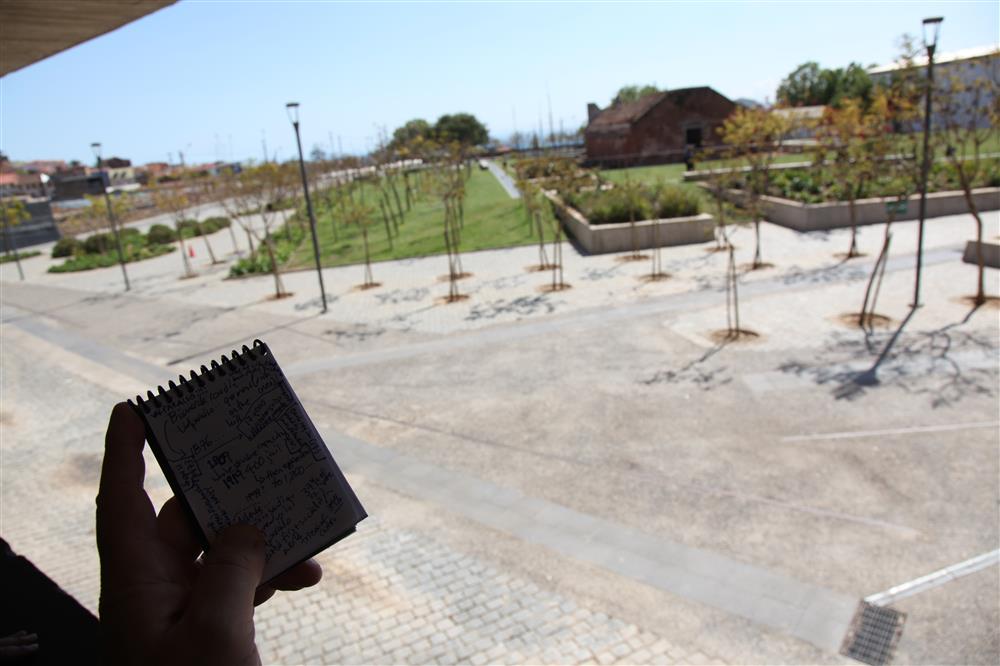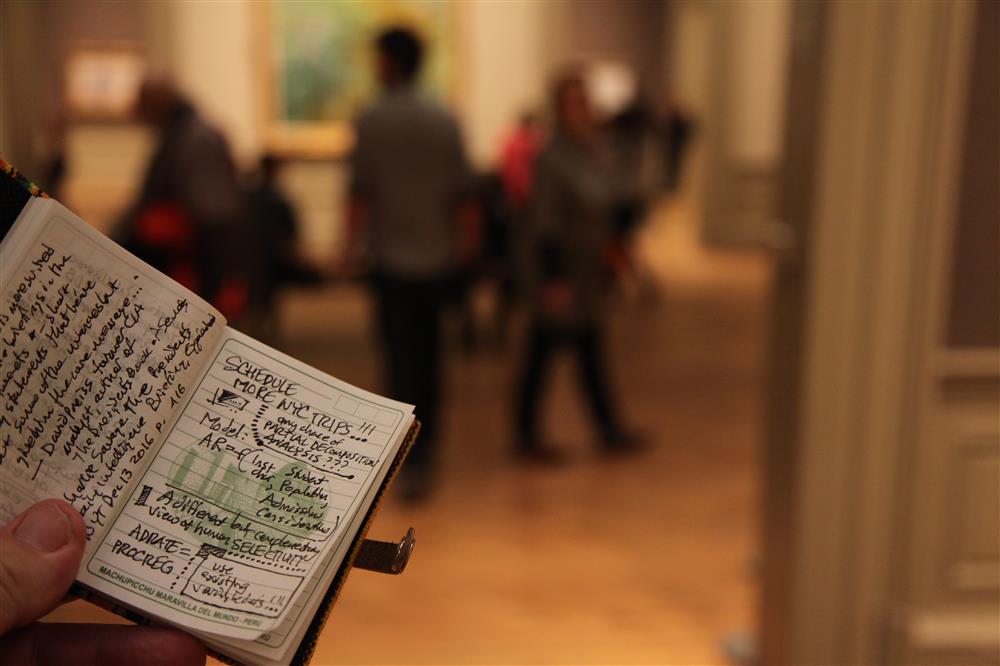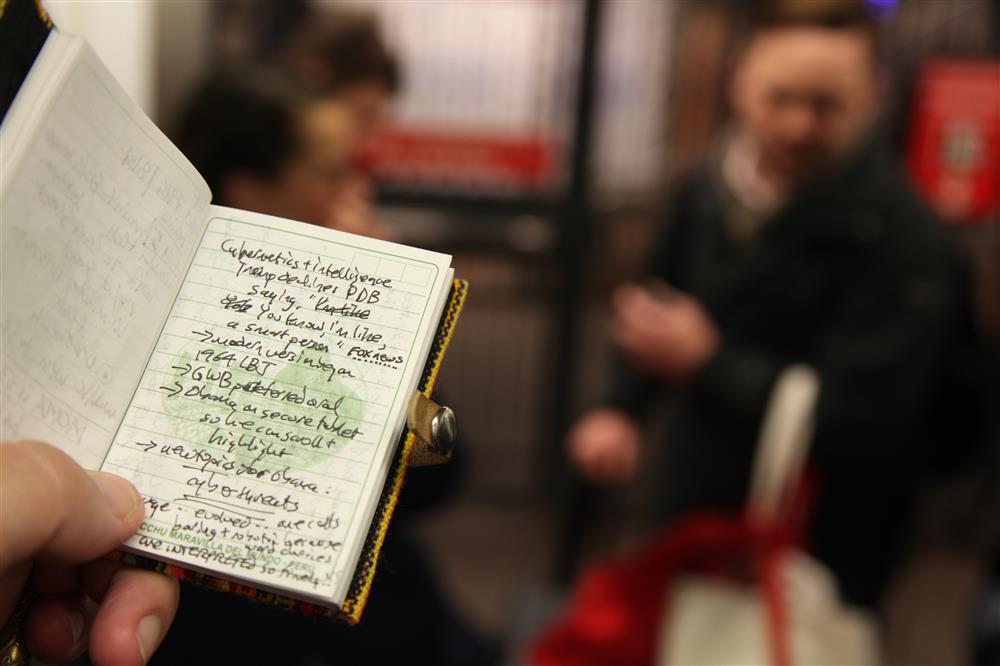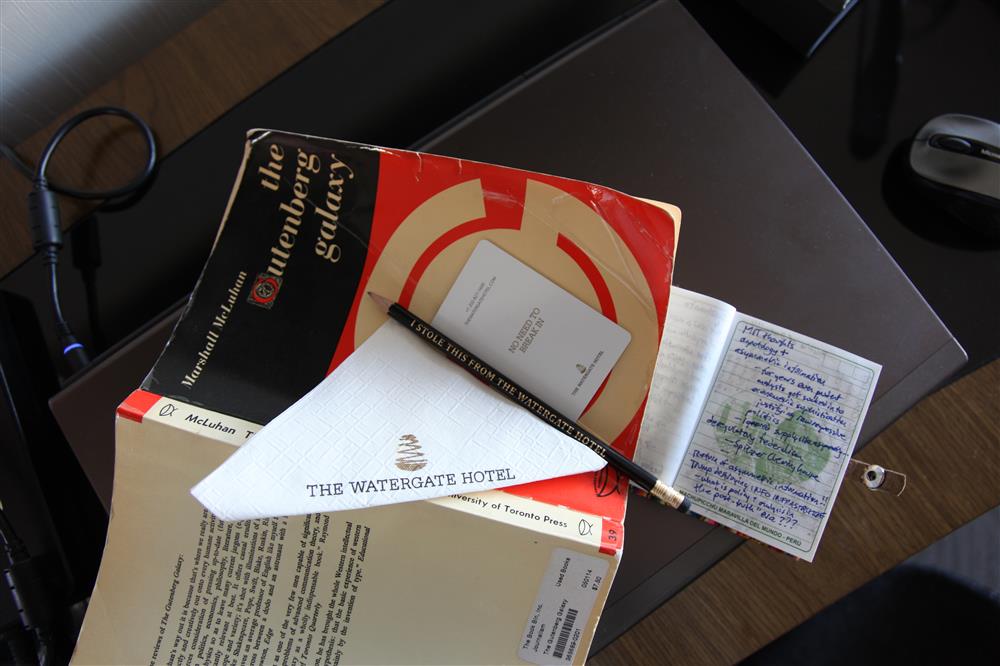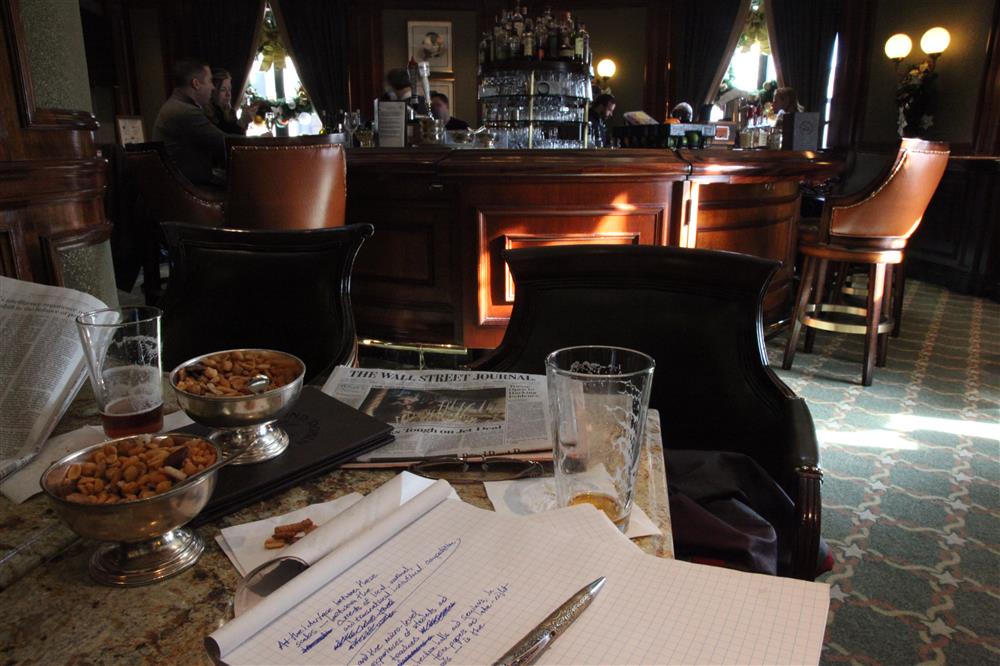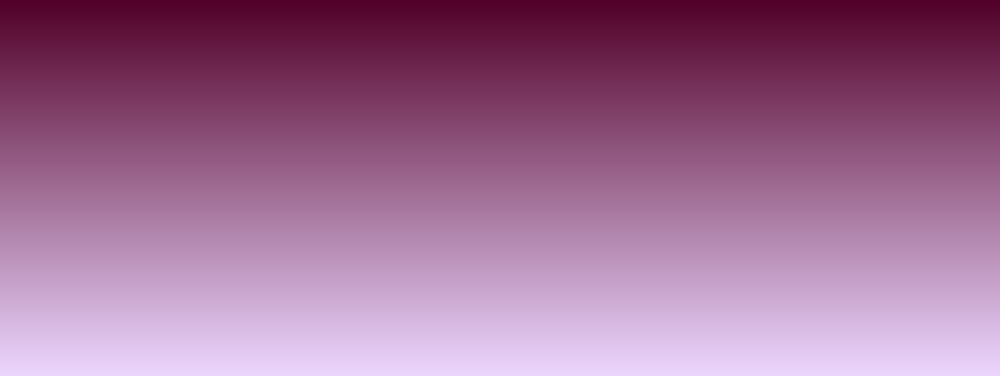
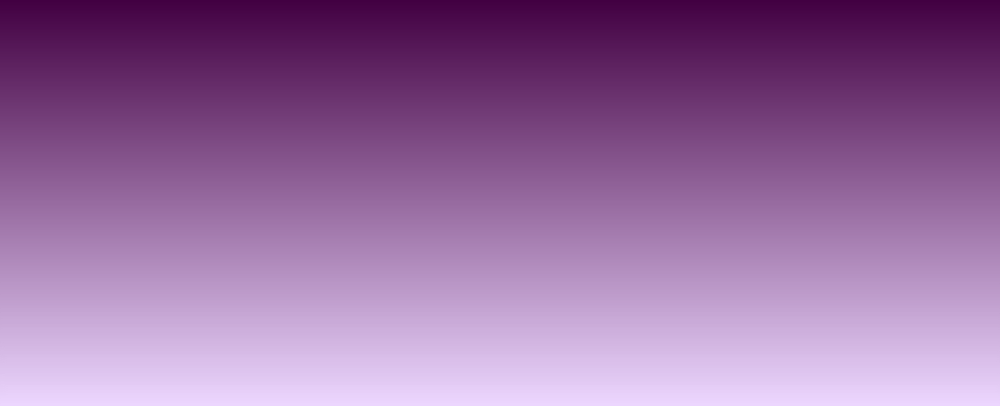
Lecture Notes
or, since everything these days has to have a trademark and a logo (see Naomi Klein's powerful book, No Logo),
elviNotes™®
Elvin Wyly
Teaching is a wonderfully fascinating, exciting, and important privilege. I love it. But it is shaped by tensions and contradictions. Among the most important is what we might call the dialectic of dynamism. On the one hand, most everyone wants the teaching and learning experience to be dynamic, interesting, and relevant to current events: most people don't really care for those classes in which the instructor simply stands up and reads out of a textbook, or presents a lecture prepared a decade ago, and has nothing to say about contemporary issues, things that are always changing, always unpredictable, always disorganized and under construction. On the other hand, dynamism is the very last thing people want when it comes to the transactional details of exams and grades. For these things, people want everything to be manageable, pragmatic, predictable, organized, and easily accessible. What exactly is going to be on the test?
Fortunately, a simple web page like this makes it possible to balance the tensions of these two goals -- change and interest versus pragmatism and predictability. I write out fairly detailed lecture notes, and I try to revise them regularly, taking into consideration recent events, additional readings, and suggestions received from students. I often find myself updating materials and reorganizing lectures right up to the last minute, when the very latest version is posted to the website before I walk into class. Over the semester, the course web page has an evolving record of materials covered in class that will help you keep track of what we've done, and to help you prepare for the examinations.
The multiple choice sections of the examinations are based almost exclusively on the lecture slides I show in class. You'll find these on the left-hand side of the "Schedule" tab. The slides are regularly updated, and then posted to the class web page shortly before each time we meet. I strongly urge you to page through the slides before class -- but keep in mind that there might be some revisions. So wait until after the lecture to download things into your collection of course materials. Whenever you visit the schedule page, don't forget to "refresh" your browser, on whatever device you're using, so that you know you're getting the updated version.
You should regard the lecture slides I show in class as a sort of evolving textbook, with an extra dose of visual materials. This means several things. First, it means that in class, you should pay close attention to the visual illustrations as you listen to me explain a theory or tell the story of a city. Don't try to scribble down every word of text that you see appear on the screen; this will be impossible! Remember, this is like a textbook. Second, after class, when you are reviewing your notes to prepare for an examination -- or when you are trying to develop ideas on a term paper -- that's when you should pay close attention to all the text on the slides. Third, it means that test questions may be drawn from any part of the lecture slides: you are responsible for reading the slides as you would a textbook. In some cases, time constraints may mean that I don't have time to show every slide during class; but you should page through the entire slide series, reading through the quotes, narratives, and explanations.
On the right-hand side of the schedule page, you'll find more extended lecture notes, as well as the required and recommended reading selections; these will help you in your work on the independent written project, and in preparing for the essay component of the final examination.
Terms of Use
1. Please do not record me with your iPhone/Android/GoPro/Predator Drone Target Tracking System. Yes, I know that some universities record every lecture, and many students find it very convenient -- so convenient, in fact, that lots of students never show up to class, and wind up procrastinating all the way to the night before the exam. If that's what you want, go to one of the many thousands of online "universities" that now offer fake degrees in every specialization you can possibly imagine. There's a dangerous dark side to the convenience of digital lives and our endlessly-expanding virtual worlds. Urbanism is about diversity, uncertainty, and the encounter -- and all of these experiences require physically showing up and paying attention. We're living in an information-overload world described by prominent philosophers and critics as "surveillance capitalism." We don't need still more surveillance from the billions of data-tracking systems that are already following us everywhere. If you're interested in further analysis of these issues, see this.
2. All lecture notes are subject to change right up to the time of the lecture as noted in the course schedule. You're free to download any of my notes or presentations whenever you'd like, but depending on when you do this, much of what you'll get might be a version from a previous year's class. I try to post new lecture slides the weekend before a scheduled lecture, but at the same time I'm also adding various improvements and connections to the latest developments in our exciting, interconnected urban world. Sometimes I can't resist adding new links when I stumble across fascinating stories, or inspiring videos like this, or this, or this. Don't you want your old dog (i.e., me, the Old Yeller professor) to learn new tricks (i.e, new theories, new connections between today's events and the heritage of theories and understandings from the past)? If you need something polished, stable, and un-changing, then let's read the textbook. (Really! Read it! It's a a great book, a wonderful blend of theories, methods, and perspectives!)
3. Take -- and create -- your own notes. "Learn" is not a transitive verb. Perhaps the single most important threat to the daily experience of teaching and learning is the false assumption that "information consumption" is equivalent to serious study. This assumption was understandable in the age of information scarcity that lasted until the closing years of the twentieth century. In that old era, one of the primary functions of the university was to serve as a gatekeeper/storehouse for socially valuable information. But now we're all swimming in information everywhere we turn -- indeed, we seem to have too much of it, from an almost unlimited array of sources. For many people, professors at the university are just another media source, or what the infoedutainment industry calls "content providers." When the information is all there at your fingertips, quickly streamed through the Internet cloud from anywhere in the world using whatever advanced must-have gadget that might be invented tomorrow, it's all too easy to slip into the role of a passive consumer, waiting to be entertained.
I strongly recommend that you guard against this tendency in all you do at the university. One simple and powerful tool: take notes, by which I really mean write notes out with your hand. Transform the experience of passive media consumption into an active, creative, and productive process. When you take notes, you should be in a creative/productive, rather than recording/consumptive, mode. In other words, you should not try to create a perfect, objective, complete record of everything that happened inside the classroom; you already have access to my lecture slide, to my extended lecture notes, and to the required and suggested readings. This liberates you to use the note-taking process for much more interesting and productive possibilities, including, but not limited to, a) drawing connections with theories and examples you've learned in other courses, b) reflecting on key strengths and limitations of the alternative approaches I've described in a particular area, c) brainstorming on interesting things you might wish to explore for projects in this course, or for other courses, and d) writing down questions you'd like to ask, either in class or during office hours.
Do not be deceived by the false mirage of high-technology substitutes for note-taking. Peer pressure and billions of dollars of advertising may well imply that the latest device du jour will automatically capture everything, making it unnecessary for you to do that old-fashioned note-taking. But it's a lie. For a few decades now, I have been suspicious of the increasingly aggressive attempts to replace the old-fashioned human technologies of learning -- simple but important activities like taking notes -- with the latest, greatest, and fastest tool that will be obsolete next week. But until recently my visceral caution towards the technological transformation of teaching and learning was based on my own experience and judgment, rather than any generalizable scientific body of evidence. That has now changed. There is now some quite compelling evidence from psychologists and neuroscientists indicating that the physical labors of hand-writing -- in particular, the cursive hand-writing skills that more and more primary and secondary schools are abandoning -- are crucial in the learning process. "When we write, a unique neural circuit is automatically activated," according to Stanislas Dehaene, a psychologist at the Collège de France; "There is a core recognition of the gesture in the written word, a sort of recognition by mental stimulation in your brain. ... And it seems that this circuit is contributing in unique ways we didn't realize. Learning is made easier." Dehaene's interpretation is bolstered by several studies in the fast-growing subfield of psychology focused on "neuroplasticity," which deals with the way certain types of activities and processes strengthen some of the brain's neural pathways while weakening others. Several studies of students' early educational experiences have "demonstrated that printing, cursive writing, and typing on a keyboard are all associated with distinct and separate brain patterns -- and each results in a distinct end product. When the children composed text by hand, they not only consistently produced more words more quickly than they did on a keyboard, but expressed more ideas. And brain imaging in the oldest subjects suggested that the connection between writing and idea generation went even further. When these children were asked to come up with ideas for a composition, the ones with better handwriting exhibited greater neural activation in areas associated with working memory -- and increased overall activation in the reading and writing networks." Other psychological research suggests that the contrasts may persist well beyond childhood. Two psychologists "have reported that in both laboratory settings and real-world classrooms, students learn better when they take notes by hand than when they type on a keyboard." Taken together, this new wave of research "suggests that writing by hand allows the student to process a lecture's contents and reframe it -- a process of reflection and manipulation that can lead to better understanding and memory encoding." [All quotes are from Maria Konnikova (2014). "What's Lost as Handwriting Fades." New York Times, June 2, p. D1.]
4. Please do not regard these notes as substitutes for attendance. To be sure, if you miss class a few times, these notes will certainly help. But if you make a habit of never showing up, you will not see the various supplemental visualizations that I show in class to illustrate key points. You will not hear the beautifully thump thump thumping of the bass as I push the sound system on the audio clips I sometimes use to illustrate key concepts and connections. You will not have the chance to ask questions. You will miss the opportunity to make fun of me for my silly jokes (I have not, after all, taken the UBC course that the brilliant Comedian Charles Demers teaches on stand-up comedy; did you realize UBC offers a class in stand-up comedy?!). You will not have a chance to poke fun at me for my crazy collection of odd ties of various colours and designs (including one or two that I'm rather embarrassed about; did you realize that Donald Trump launched his own line of ties almost two decades ago?).*
And, an even more important consideration in attendance is this: if you don't show up, you won't get the chance for those unexpected conversations with those talented, brilliant colleagues sitting right next to you. Look around you: these are your peers, your allies, and your teachers. You get the chance for unexpected, valuable learning experiences when you engage in real, live, human, face-to-face conversations.
It is also the case that if a sufficient number of our colleagues decide not to show up, sooner or later I will simply be forced to eliminate the convenience of making everything available. Allen Stewart Konigsberg's famous advice might not get you all the way to the mark of 80 percent, but showing up is certainly important ("Eighty percent of success is showing up" -- Konigsberg is also known as Woody Allen). UBC is not an online university (yet). In our frantic infoedutainment society, your most valuable asset is your attention. That's what I want. And not mediated through the intricate matrix of wired and wireless electronic impulses that now pervade our society. Please, do try to make it to class so we can share a presence as we explore the extraordinary fascinations and passions of cities and urban life.
5. If you have any questions, feel free to stop by my office hours for a chat. If you can't make my office hours, then just stop by my office whenever you're in the vicinity to see if I'm available.
Please think twice before sending me emails about the lecture notes. I began writing and posting my lecture notes as one way of coping with the many emails sent by students who missed class, then fired off questions like, "Did I miss anything in class today?"
Footnotes
*Okay, the Trump ties. I confess, I own two of them. I bought them quite by accident, without really even noticing the name on the label, back in 2003 when I was new in town in Vancouver. For a few years, this page said, "bad hair, good ties." In later years, various caveats were added, eventually yielding something like this: "Bad hair, horrible business ethics, and violently racist White nationalist xenophobic politics that have now sadly been imported into Vancouver thanks to the developer Joo Kim Tiah." That was in the Fall of 2015, after Trump had announced his run for the U.S. Presidency but nobody thought he had a chance. Well, now. He won, and there were protests in Vancouver at the Trump Tower (I was on research leave in 2016-2017, so I just saw this stuff online). There now seems to be a not-statistically-insignificant contingent of Trump supporters at UBC. Not long ago, I received a novel-length email, sent to all "left-wing professors," demanding political "balance" in the interest of "free speech" and "free inquiry." So now perhaps that little side comment about Trump ties will be required to include two caveats: 1) Please forgive me for making fun of Trump's hair. 2) Okay, I'll aim for balance, to teach all the bad business ethics, misogyny, and violently racist White nationalist xenophobic politics that are required in order to understand the subject matter of our courses in a Trumpian world. How's that?
Sorry for the political detour! I promise, I have no interest in political indoctrination of any kind -- I'm less interested in telling you what to think and more interested in working with you to explore how to think. I do not expect anyone to conform to my way of thinking. All that is expected is that you approach the academic enterprise with sufficient care, attention, and integrity to enable you to: 1) recognize and explain key theories at the core of the course material, 2) stake out your own position on these theories or related, contested issues, and 3) provide compelling, well-organized evidence to back up your interpretations and/or arguments. (If you're curious about the kinds of evidence I would present to defend my views on the figure Spike Lee calls 'Agent Orange,' one sample is here). Our coursework is governed by UBC's policies on Freedom of Expression and Academic Freedom. There are subtle differences between these two concepts, and in one sense part of my job is to help you understand course content while exploring varied methods, logics, and perspectives that may defy easy categorization. By the end of taking one of these classes, you may regard some aspects as too conservative, others as too radical, and still others as WTF-unclassifiable -- impossible to fit into the familiar categorizations of contemporary policy and politics. That's an accurate reflection of our present historical moment of planetary urbanization and global social-media information overload. So many assumptions are being scrambled and reconfigured -- at the same time that contentious debates over what to study in the university have become entangled with important questions of how to learn and who has the right to represent particular bodies of knowledge.
Let me give you a few examples, from the "left" and from the "right."
One of the courses I teach is a quantitative methods studio, where we learn how to analyze evidence to document the pervasive racial inequalities in policing practices that pervade cities in the United States. "I'm interested in a broad range of studies," one student wrote in an introductory essay, "but I find that no matter the subject, my focus lies in anti-oppressive and critical frameworks. This would come from my lived experiences, as well as through the formal work I do in anti-oppressive programming." This student did excellent work, but was frustrated through the entire seminar, always feeling that the material should be more critical, more intersectional -- and that it was a waste of time learning statistical methods to prove the obvious. One day, in the very busy last weeks of class, the student stopped by during office hours. As she approached, she looked angry and exhausted. "I hate White people!" she sighed as she collapsed into a chair. Well, yeah, I must admit that sometimes I feel the same way, particularly as I read analyses like this. Still, it came as a bit of a shock to hear this as a conversation-starter. The student was frustrated with some of her other courses: too much DWEM theory presented by almost-D WEMs (If you're not familiar with the acronym, DWEM was coined in the culture wars of the early 1990s, and stands for the "Dead White European Males" that dominated the canon of so-called "Western Civilization" history courses.) Part of the poignance of the student's frustration was that, in daily life, most casual observers on campus who saw her would probably have identified her as 'White'; but her identity was much richer and more intersectional, and for her, Whiteness itself is a position of contemporary as well as historical violence. This is an important perspective -- there is an extensive scholarly literature on this topic -- but it becomes very challenging when students are resistant to learning important methods (correlation coefficients, matrix algebras, Eigenvalues) because of the European colonial heritage of some of the scientists who developed them. Francis Galton was a horrible white supremacist, and Karl Pearson was a hardcore eugenicist; but you still need to learn how to calculate correlation coefficients and Chi-square values.
Here's a second example. The next year, in the same quantitative methods studio, a student introduced themselves this way: "I identify as a queer intersectional feminist Chinese activist growing, studying, and creating on unceded Coast Salish territory. I am focusing my studies on understanding the lives and migration patterns of my matriarchal ancestors.... As a fourth-generation Chinese-Canadian, whose ancestors were Canadian Pacific Railway workers, and subject to the Chinese Head Tax, I am interested in how urban geography and feminist theory intersect with historic and contemporary experiences of racism, sexism, and homophobia." This brilliant student, too, found the course too conservative, and insufficiently intersectional. And all this brilliance was focused on a hyper-vigilance that created its own complications. In the first course meeting, after presenting a trigger warning to prepare everyone for necessarily disturbing material, we watched a series of videos, including a short documentary on stop-and-frisk practices in New York City. Halfway through, another student gasped audibly, although not very loudly. A bit later the student quietly stepped out of the room. Later, I received extensive emails from the student and from the student's Advisor at UBC's Access and Diversity, raising concerns that because of a history of trauma the student might not be able to complete a course where part of the subject matter involved police violence (the student did ultimately stay in the class). But then shortly thereafter I received a long email from the queer intersectional feminist Chinese activist, who had perceived that student's gasp as a sign of disrespect. The email, in fact, represented a contingent of several students concerned that the class was not sufficiently focused on the multiple dimensions of intergenerational, intersectional trauma, especially for the case of Vancouver's Chinatown. And: "Another concern of mine is about an individual in the classroom that seems to take up a lot of space, who laughed and mimicked actions seen during the watching of videos throughout our first class ... I think that fostering a safe speaking environment is integral to our collective enjoyment and learning, and that this individual, given their positionality, may interfere with that. ..."
This created an interesting intersectional contradiction. The positionality in question seemed to be about race; the woman who gasped seemed to be a white woman, and the protesting students instantly perceived a pro-police, racist attitude. This was a misperception: these students could not see the other intersectional dimension of identity and experience that involved pain and trauma. Remember, the other student was registered with Access and Diversity. Instructors are not permitted to know any of the details of learning disabilities, mental health diagnoses, or any other conditions justifying an accommodation through Access and Diversity. It is also prohibited for instructors to tell one student about another student's status with Access & Diversity. It is also the case that the student's alleged 'whiteness' was itself uncertain: one of the defining elements of Canadian society is multi-generational mixtures that defy the purist classifications of traditional European nineteenth-century hijacked positivism (if you want to learn more about these issues, read some John Raulston Saul; if you don't have time to that, then just do a quick image search on Winnipeg Mayor Brian Bowman). So I had to think very carefully to find ways of communicating that were accurate, permissible, and honorable. I tried to communicate to the protesting students that, no, what you interpreted in the traumatized student's reaction was not, in fact, a sign of white supremacist disrespect. But legal restrictions meant that I could not explain to them why, in fact, the student had gasped. Therefore, the protesting students never really trusted me; judging from various comments on the final course evaluations, these students never really felt safe in the classroom, because of misperceptions of another student's attitudes towards the course material. My own positionality also probably made it very difficult for the students to trust me.
Now consider an example from the right. While many would regard Trumpian sensibilities or other contemporary political views as tied closely to particular identities of race, ethnicity, and gender/sexuality, this is a dangerous oversimplification of complex, evolving intersectional positions and attitudes. "I see this stereotype that all conservatives are white, straight men on campus," explained UBC Political Science student Elisha Francis, speaking with reporters for The Ubyssey in a special feature on campus conservatism. "That's not true at all," Francis continued; "For me, I'm brown, I'm a woman, and I'm conservative." "According to Francis and Shakiba Fadare, a third-year arts student, being a visible minority causes people to automatically assume they identify with the political left," the reporter continues. "It's funny because people think, 'immigrant, not from this country, and you're a woman -- you should be on that side,'" Francis explains, noting that "she was accused of being against women's rights from people after learning that she was conservative." "I was like, that's crazy ridiculous!" Francis recounted; "I can be a feminist and I can be conservative as well," she said. Francis later described to the reporters her concerns about political bias in her coursework: "I'm not going to lie, I wouldn't write a super right-wing paper [...] And it's sad because I have a GPA that I don't want to risk ... I don't want to get docked marks for having a different view, and in that case it's just safer to cater to what the professors think." (All quotes from Thea Udwadia and Claire Lloyd (2018). "C is for Conservative." The Ubyssey, June 26, pp. 6-7.)
Again, my apologies for this political detour! What's my point? I've got three. First, you never need to cater to what this professor thinks. I'm always happy to tell you my opinions or views, but the important challenge is for you to develop your own perspective -- once you've mastered the body of knowledge that you and I have inherited from scholars who came before us. Your grade is determined by your ability to recognize and understand theories (regardless of your opinions on those theories), and your ability to build and justify an extended scholarly argument or analysis; these are skills of concentration, not conformity. Second, you now know that Access & Diversity performs a very important function in the University, and that your conversations with advisors in that office are strictly confidential. Access, diversity, and mental health are all fundamentally important principles in higher education -- and indeed throughout all of society in our present age of what has been called "cognitive capitalism," in an era of planetary urbanization. Third, you now have a little bit of perspective on the fascinating diversity of experiences and opinions you can find here in UBC, or at least the small corner of UBC with which I'm familiar. To gain that perspective, you've had to wade through a lot of text and some big fancy words. Sorry! It all started with a few ties I bought shortly after coming to UBC quite a few years ago, and then adding a few words now and then to this page in attempts to keep up with changes in student questions and concerns. I'm just trying to give you enough information to help you make decisions that work best for you, and to help you avoid stress or frustration. If you still have questions or concerns, stop by during Office Hours. I'd love to chat!
*
Part of "To Do: An Interactive Installation," Orchard Road, Singapore, January 2010 (Elvin Wyly). "We all procrastinate way too much in our lives, and this is just a symbol to the world that we mean what we say," reads the promotional material for the installation, a giant wall of Post-It Notes. Anyone and everyone was invited to stop by and write their personal entry on an evolving "To Do" list. The installation was created by Ape Communications, with support from a local commercial/retail business improvement district (Orchard Central), and 3M. Guess who manufactures Post-It Notes?
All I ask for is your attention. But, yes, I know, that's a lot to ask. In our turbocharged, overloaded infoedutainment society, your most valuable asset is your attention. It is also the asset most vulnerable to the assaults of nearly every technology in use today by private companies, public institutions, and individual and collective social groups. We are all complicit. Things have gotten so bad that there is now a nonprofit group, led by an engineer from Intel, called the Information Overload Research Group. There is a new field of study known as "interruption science." Gloria Mark, a leader in this field, has conducted research suggesting that the typical knowledge worker switches tasks every three minutes, "and, once distracted ... takes nearly a half-hour to resume the original task." Maggie Jackson, who authored "Distracted: The Erosion of Attention and the Coming Dark Age," sums up the dilemmas this way: "Beeped and pinged, interrupted and inundated, overloaded and hurried -- that's how we live our lives today. We prize knowledge work -- work that relies on our intellectual abilities -- and yet increasingly feel that we have no time to think. ... The greatest casualty of our mobile, high-tech age is attention. By fragmenting and diffusing our powers of attention, we are undermining our capacity to thrive in a complex, ever-shifting world." Maggie Jackson (2008), quoted in Marci Alboher, "Fighting a War Against Distraction." New York Times, June 22, Shifting Careers section. Things just keep getting worse. Facebook status updates, it seems, require attention spans that are, like, ya know, like, just way too long - so now we have Twitter. On the Canadian launch of the iPad, the National Post financial section highlighted the extraordinary new possibilties for wealthy investores eager to tap the flood of real-time information. But while "market enthusiasts can get market intelligence 24/7, and track market developments overseas when domestic markets are closed," market researcher Murray Leith notes, there is a serious danger of "information overload." The average stock traded on the New York Stock Exchange has been held for only six months, down from about two years in the early 1990s, and six years during the 1970s. "This seems like the investment equivalent of attention deficit hyperactivity disorder," according to one money manager. All quotes from David Pett (2010). "Too Much Information: iPad Just the Latest Way for Investors to Drown in Information Overload." National Post, May 29, FP8.
.

Taking notes on The City. Graffiti, Macao, February 2010 (Elvin Wyly). Graffito comes from the Italian and French graffio, "a scratching."
CopyLeft 2018 Elvin K. Wyly
Except where otherwise noted, this site is
"Two psychologists, Pam A. Mueller of Princeton and Daniel M. Oppenheimer of the University of California, Los Angeles, have reported that in both laboratory settings and real-world classrooms, students learn better when they take notes by hand than when they type on a keyboard. ... the new research suggests that writing by hand allows the student to process a lecture's contents and reframe it -- a process of reflection and manipulation that can lead to better understanding and memory encoding." Maria Konnikova (2014). "What's Lost as Handwriting Fades." New York Times, June 2, p. D1. See also James Doubek (2017). "Attention, Students: Put Your Laptops Away." National Public Radio, August 17.
"In the act of reading, many readers become writers. They underline passages, draw arrows, and doodle. They write in margins, revealing their own thoughts or objections to what authors have said." Naomi S. Baron (2015). Words Onscreen: The Fate of Reading in a Digital World. Oxford: Oxford University Press, p. 27.
Oprah Winfrey, speaking with the author Toni Morrison about her book Beloved: "Do people tell you they have to keep going over the words sometimes?"
Toni Morrison: "That, my dear, is called reading."
Quoted in Naomi S. Baron (2015). "The Web Ate My Print Option: One-Off Reading." In Words Onscreen: The Fate of Reading in a Digital World. Oxford: Oxford University Press, p. 93
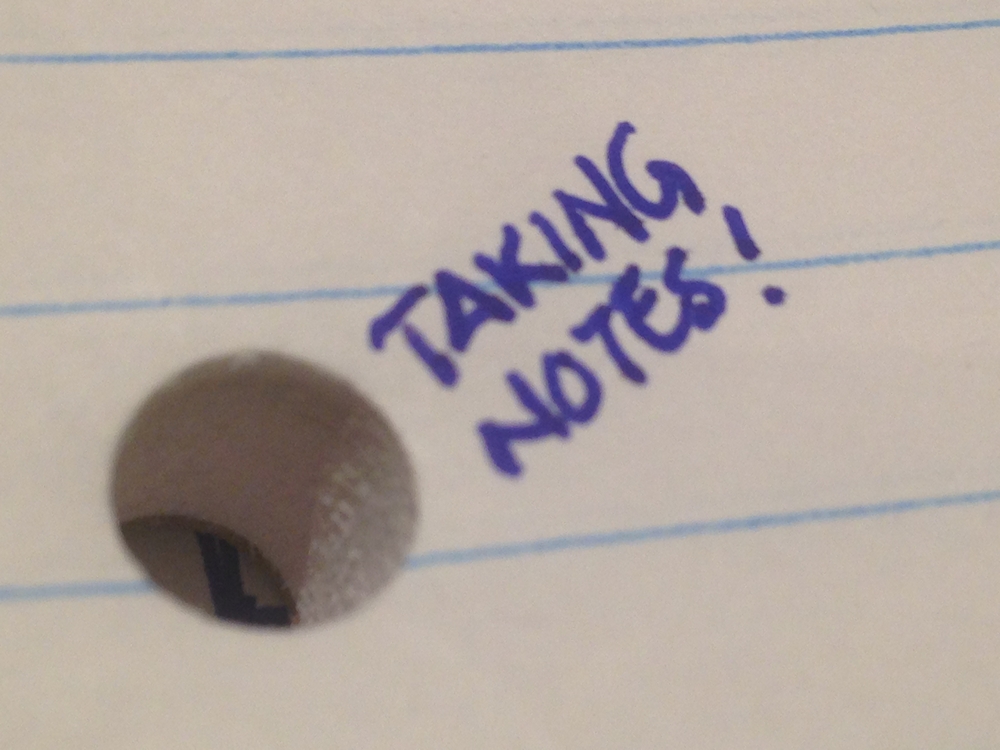
Write everywhere you go. Notes, thoughts, brainstorms, ideas, possibilities, connections, to-do lists. Taking notes is your way of engaging with the world, making sense of things, and of interactively creating something that is your own. If you want to see a long, detailed explanation of what I mean by these comments, see this. Or just glance at the images below, and think of it this way: when you travel -- whether it's a short trip across town from home to work or school, or somewhere more distant in the world in a once-in-a-lifetime expedition -- don't you find the experience so stimulating, so generative of ideas and connections? Write them down. Scribble furiously, every chance you get. Draw connections between things you've read lately and what you see on your travels. Write notes to yourself on key priorities, plans, and possibilities. Then, the next time you're stressed out when you are asked to write something -- an essay for a course, a statement for a job application, a letter requesting help from someone, whatever it might be -- you can look through your 'traveling notes' to try to get yourself back into that free, open, wide-ranging creative state of mind. It's a great way of coping with writer's block.
Below: a small sample of some of the notes scribbled on a few travels. 1) Thinking about the history and legacies of neoliberal violence at the site of the prison Augusto Pinochet set up after the 1973 coup overthrowing Chile's democratically elected President Salvador Allende. The coup was secretly sanctioned by Henry Kissinger and Richard Nixon, and Pinochet's "free market" experiments were refined thanks to a team of traveling consulting economists who came to be known as the 'Chicago Boys'; the fatal contradiction of neoliberalism is an abiding faith in the power of "free" markets that must be imposed, protected, and defended at the point of a gun. Be free or you will be killed! These notes were taken at the site of the prison Pinochet built to house many of the regime's political prisoners, in Valparaiso. 2) Scribbling ideas at The Met, the New York Metropolitan Museum of Art. For a few years I loved close enough to New York City to understand what it means to refer to The City, without having to be more specific. I miss being near the place. Schedule more NYC trips! Then I had a new idea on a project on academic competition and letters of recommendation, using some of the data from the Integrated Postsecondary Education Data System (IPEDS). Most of my modeling work on this project has been using logistic regression, but there's also a role for an ordinary least-squares (OLS) regression of institutional acceptance rates. 3) Notes on the NYC subway, after "President" elect Trump departed from the modern tradition of the PDB (the 'President's Daily Brief' of intelligence assessments of threats and security situations in various parts of the world." "I'm like, you know, an intelligent person," Trump told Fox News; he didn't need to be told the same thing over and over, and so he was going many days and often weeks without intelligence briefings. He would just get it when he needed it, he said. And of course he'd be watching the cable shows. Press coverage instantly featured quotes from intelligence analysts, current and former, who suggested that the U.S. national security infrastructure might very well begin to remake the way they communicated to the Tweeter-in-Chief. With a President unwilling and unable to focus on things for more than a few seconds, intelligence updates might now be more like the quick-hit cognitive crack cocaine of cable news, or the right-wing clickbait conspiracy theories of Breitbart and InfoWars. Who the fuck imagined that we would be nostalgic for the intellectual depth and scholarly wisdom of George Dubya Bush? 4) Brainstorming on topics for a possible presentation on sustainable finance in the contemporary era, nearly a decade after what Ben Bernanke called the worst financial crisis in the history of global capitalism. I'm also slowly working my way through some of Marshall McLuhan's enigmatic brilliance. And at this moment we were doing this at the Watergate Hotel, made famous by Nixon's thugs who broke into the headquarters of the Democratic National Committee in 1972. As the revelations broke of Russian hackers infiltrating Democratic servers and private emails in the 2016 election, the Times published a front-page story with an astonishing photograph. An old beige filing cabinet stood next to the wall of the current DNC headquarters office; the bottom handle broken off, this was one of the original filing cabinets the operatives broke in to get secret information back in 1972. Right next to the filing cabinet was a nondescript table, and on the table was a small horizontal box -- a computer server. This was one of the servers involved in the hackings of 2016. Now, after a long hiatus in which the Watergate hotel was closed, you can stay at the newly renovated boutique hotel. It's a beautiful place, and the new investors and managers playfully reference the legends of a previous generation. "No need to break in," read the cards that get you into the rooms. And then of course the pens and pencils they give you read, "I stole this from the Watergate Hotel." But they gave us the pens and pencils! 5) Composing a few sentences on that project on academic competition, the IPEDS database, and letters of recommendation, in the Round Robin Room at the Willard Intercontinental, in Washington, DC, just north of the White House. In the rat's next of files on the computer archiving system I've put this in a folder with the boring name "Letter of Recommendation Project." Scribbling a few sentences, I've come up with a pretentious title, "Referential Treatment in the Age of Cybernetic Cognitive Capitalism." We'll see how it goes. 'Cybernetic cognitive capitalism' sounds like such a modern, technologically sophisticated era, but think again. Donald J. Trump lost the popular vote by nearly three million votes and yet he is still President thanks to the built-in biases of the Electoral College -- an institution created in order to appease the objections of slave owners who wanted to be free. And don't forget that Trump, a "reality" television celebrity, launched his political career by jumping in with the "Birthers" -- the deception-industrial complex of right-wing lies to discredit Barack Obama by suggesting that Obama's birth certificate was faked and that he had not been born in the United States. 'Cybernetics' is about messages and information, but there's never any guarantee that information will be accurate or reliable. My own use of the cybernetics literature involves the technological acceleration of students forced to compete more often and in more domains of life. My project doesn't really deal with Trump or Trumpology, but I was certainly thinking about the dangers of right-wing cybernetics when we were at the Willard, one of the rather infamous sites of Washington, DC networking. The Round Robin Room is just steps away from "Freedom Plaza." Ah, freedom. That's right out in front of the Ronald Reagan building. Days after the election, the Reagan building, which is right next to the White House, hosted a conference of horrifically happy White nationalists elated at Trump's victory; press coverage noted that several attendees gave Nazi-style salutes to the chant of "Hail Trump!"
...Keep working, reading, traveling, and thinking ... and always take notes!
*
You will note that while Dino and Momo have been enjoying a bit of hookah, I have been taking notes, thinking, exploring, and writing. Always have something with you so you can scribble ideas and possibilities! Granada, Spain, February 2017.
"Here’s the problem — your professor is lecturing and you should be taking notes, but you’d much rather collect memes on Facebook or reply to your friend’s text. Your smart solution? Do both at the same time. ...
Except that might not be the smartest thing to do."
See the summary of some of the evidence, some of it from UBC's own researchers, on the efficiency myths of multitasking, in Kristine Ho (2017). "Stop Reading This Article in Class." The Ubyssey, March 15.
Reasons to Read Real Books, Volume 287
From a post to reddit.com/r/ubc, June 2017:
"Incredibly bad experience with Pearson (eBook) - I just need to vent for a second. (self.UBC) submitted 17 hours ago by The_Virus360Commerce
I bought a Pearson eTextbook for my summer term one class, per the UBC bookstore's recommendation (the hard copy was $200 more expensive, and they didn't even have it in stock). I had never bought an online textbook before, and I figured it would be a good way to save some money. Boy was I wrong. Despite the lower price, I will never be buying an eBook from them or anyone else again.
Navigating through the book I find extremely frustrating and unintuitive, the website logs me out if I don't flip the page for too long, and all of the other "features" that come with it (MyLab, online quizzes, extra practice questions, connected textbook features, etc.) I have never used once. I have found the old exams from my prof and the extra questions inside the actual book to be more than enough and much more helpful. Maybe other folks use these features?
But that all pales in comparison to my chief complaint. Pearson decided to do site maintenance this weekend (and in fact, almost every weekend of the class thus far), rendering my eBook unaccessible for the duration of the outage and therefore useless. I couldn't figure out a way to print the book; it only allowed me to print one page at a time, and these pages had a huge watermark. Not to mention it would be very expensive to do so even if I could, as I do not have a printer of my own. I was just in the middle of a study session at IKB, which has been rudely interrupted by this maintenance. I just found out that it won't end until 9AM tomorrow - absolutely incredible. My exam is Monday morning.
It is true that this doesn't prohibit me from studying, I can still use the slides that my prof posted online and the old questions. But it does mean that I might as well have flushed $100 down the toilet because this 'book' has been almost useless. Next time I want to save money, I'll just buy the used version. Lesson learned.
/rant"
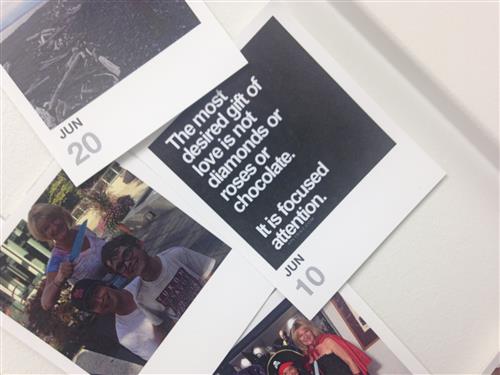
Beware the technological temptations
of that latest laptop/tablet/phone/phablet that promises speedy 'capture' of information in a lecture. Unless you're differently abled in physical terms, take advantage of the opportunity to use your own hands, your own mind, your soul, to take notes and engage with the material, to make it your own, to become part of the 'information.' See this.
FAQ
Frequently Asked Questions
Can I have an extension?
It depends, but in many cases while classes are in session, yes. But when we get to the end of the term? Nope, I no longer have any authority. Please read the syllabus.
What is your favourite city in the world?
I can't choose. I love individual cities, but even more than that, I love the idea of urbanism itself. To understand that, well ... let's explore what that means in this course...!
What is the most dangerous nation in the world?
See this.

